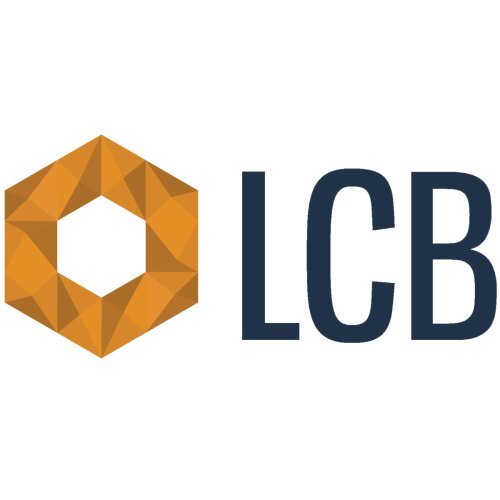Best Immigration Lawyers in Copenhagen
Share your needs with us, get contacted by law firms.
Free. Takes 2 min.
List of the best lawyers in Copenhagen, Denmark
About Immigration Law in Copenhagen, Denmark
Immigration law in Copenhagen, Denmark, primarily falls under the jurisdiction of the Danish Immigration Service and the Ministry of Immigration and Integration. This field of law governs the entry, residence, and naturalization of foreigners. Copenhagen, being the capital city, is a central hub for immigrants seeking residence or citizenship in Denmark, offering a blend of cultural diversity and economic opportunities. The legal framework encompasses various types of permits, including work, study, and family reunification permits, and addresses issues like asylum and citizenship applications. Denmark's immigration policies aim to balance welcoming foreign talent and maintaining social cohesion.
Why You May Need a Lawyer
Legal advice in immigration matters can be crucial for several reasons. If you are facing challenges in obtaining a work or residence permit, a lawyer can provide guidance on fulfilling necessary criteria and compiling required documentation. Additionally, if your application for asylum has been denied, understanding the appeal process with the help of legal expertise is vital. Lawyers also play a critical role in complex family reunification cases or when navigating the legal intricacies of becoming a Danish citizen. Their assistance ensures compliance with local regulations and can significantly speed up the bureaucratic processes involved.
Local Laws Overview
Danish immigration laws are particularly stringent, emphasizing integration and self-sufficiency. The rules can vary depending on the type of residence permit you are seeking. Commonly relevant laws include the Aliens Act, the Nationality Act, and specific EU regulations for EU/EEA nationals. The Aliens Act outlines the prerequisites for residence and work permits, emphasizing the requirement for employment contracts and integration evaluations. The Danish government has rigorous requirements for family reunification, including income thresholds and language proficiency. Asylum seekers are subject to international conventions but must comply with Danish regulations for processing applications.
Frequently Asked Questions
What types of residence permits are available in Denmark?
Denmark offers several types of residence permits, including work permits, study permits, family reunification permits, and asylum-seeker permits. Each has specific eligibility criteria and processes.
What are the requirements for obtaining a work permit in Denmark?
To obtain a work permit, a valid job contract from a Danish employer is typically required, alongside meeting other criteria such as relevant educational qualifications and ensuring the position cannot easily be filled by a Danish national.
How does the asylum process work in Denmark?
Asylum seekers must apply upon entry into Denmark. Their case is evaluated by the Danish Immigration Service, and they may reside in reception centers during processing. If denied, individuals have the right to appeal the decision.
Can I bring my family to Denmark if I have a residence permit?
Family reunification is possible but involves meeting specific criteria, such as income requirements, sufficient living space, and language stipulations. Each family member typically needs to apply separately.
How long does it take to become a Danish citizen?
The path to citizenship can take several years. Applicants must have held permanent residence, demonstrate language proficiency, and pass a citizenship test, among other criteria.
Are there special considerations for EU/EEA nationals?
EU/EEA nationals benefit from simplified processes under EU law, allowing them to live and work in Denmark with fewer restrictions than non-EU citizens.
What language proficiency is required for residence permits?
The Danish government often requires evidence of Danish language proficiency, especially for family reunification and citizenship applications. This can vary depending on the permit type.
What should I do if my immigration application is denied?
If denied, it is crucial to seek legal advice immediately. You may have the option to appeal the decision or reapply with additional evidence.
How can I prove my financial ability to support family reunification?
Applicants need to demonstrate stable financial means, typically through income statements or bank records, to prove they can support themselves and their family members.
What are my options if my visa expires while I'm still in Denmark?
You should apply for an extension or a new permit before the expiry of your current visa. Staying without valid status can lead to deportation and affect future applications.
Additional Resources
For further assistance, consider contacting the Danish Immigration Service or the Ministry of Immigration and Integration. Organizations such as the Danish Refugee Council and local legal aid centers are valuable resources for guidance and support in immigration matters.
Next Steps
If you need legal assistance in immigration matters, consider consulting a specialized immigration lawyer. Research lawyers in Copenhagen who have experience with cases similar to yours, and schedule a consultation to discuss your needs and explore your options. Preparing all necessary documentation and clearly defining your objectives will help ensure an efficient legal process.
Lawzana helps you find the best lawyers and law firms in Copenhagen through a curated and pre-screened list of qualified legal professionals. Our platform offers rankings and detailed profiles of attorneys and law firms, allowing you to compare based on practice areas, including Immigration, experience, and client feedback.
Each profile includes a description of the firm's areas of practice, client reviews, team members and partners, year of establishment, spoken languages, office locations, contact information, social media presence, and any published articles or resources. Most firms on our platform speak English and are experienced in both local and international legal matters.
Get a quote from top-rated law firms in Copenhagen, Denmark — quickly, securely, and without unnecessary hassle.
Disclaimer:
The information provided on this page is for general informational purposes only and does not constitute legal advice. While we strive to ensure the accuracy and relevance of the content, legal information may change over time, and interpretations of the law can vary. You should always consult with a qualified legal professional for advice specific to your situation.
We disclaim all liability for actions taken or not taken based on the content of this page. If you believe any information is incorrect or outdated, please contact us, and we will review and update it where appropriate.
Browse immigration law firms by service in Copenhagen, Denmark
Copenhagen, Denmark Attorneys in related practice areas.
















